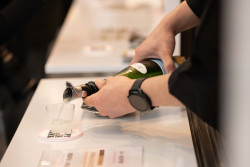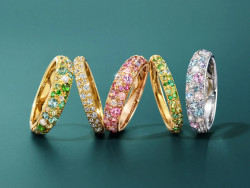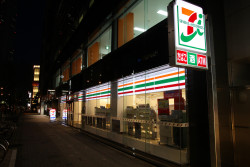
October 14, 2010
Half-Baked in Tokyo
One man’s culinary paradise is another’s cultural wasteland
By Metropolis
Originally published on metropolis.co.jp on October 2010
In the jobless summer following my second year of university, I survived on nothing but creamed corn and bunless hotdogs. For seasoning, I used all I could afford—Dairy Queen pepper packets, the salt from my tears—but my diet, like the summer itself, was a lost cause. I told myself that even though I was eating stuff UNICEF would throw in the garbage, it was going to be the worst food I would ever have to eat. Then I moved to Tokyo.
I’m no foodie—obviously—but I know bad food, and I often find myself choking down flavorless crap when I go looking for restaurants that claim to serve my favorite ethnic dishes. Thai, Malay, Mexican, Indian—the world’s most wonderful cuisines are all available in Tokyo. But instead of being a rich and fulfilling cultural experience, the food served at the majority of these restaurants is either heartbreakingly bland, weirdly bastardized or completely ruined.
The common explanation for the overwhelming blandness of Tokyo’s foodscape is that Japanese people don’t like spicy food, or their palettes aren’t used to it, so restaurants, in an attempt to build a clientele, decrease the potency of their dishes. This is a load of bullsushi—enjoying spicy food is a matter of exposure, not race—and a rather gutless cop-out on the part of our city’s restaurateurs. If you want to court Japanese customers, start an izakaya. If you want to pique the interest of open-minded, curious people, not only in a menu but in a culture as well, you have to do it with authenticity. For the love of Gordon Ramsay, the staff at a Thai restaurant shouldn’t have to ask, “Do you want it spicy?”
Most Tokyo residents would say “No.” To them I say, “What do you want?”
Food is culture, and when you see a lack of interest in another culture’s food, you see a lack of interest in that culture. This is why good food is so hard to find in Tokyo. It’s not the tender tongues of the nihonjin that are being courted—it’s their lack of interest in things non-Japanese. If Thai food can be made to seem less different from Japanese food, restaurants serving it might increase business; it certainly works for Italian restaurants and their noodle-heavy menus. But if you blast away at some salaryman with both barrels of a scorching tom yum soup, you not only turn his rectum into an inverted volcano, you reinforce in his mind just how different Thailand and Japan are. In other cities, ethnic restaurants are prized for the authenticity of their food and the vitality they bring to neighborhoods, but in Tokyo, that’s no way to run a business.
A wariness of The Different permeates Tokyo and prevents it from being one of the world’s truly great cities. I expect this attitude from some donkey-rider in Saitama, but I’ll never understand how such narrow-mindedness and disinterest can exist in the mind of anyone who chooses to live in a city of this size.
Why would people move to and endure life in a large city if not for the opportunity to be inundated with and influenced by the people, the ideas, the sights and the flavors? That’s certainly why I came here. It’s also one of the main reasons I find Tokyo so disappointing. You can discover the odd oasis of foreign noise and flavor here, but often without any accompanying interest from the local population.
It’s easy to compare Japan to England—both countries are conservative, aloof, pale and full of starch and carbs—but you can’t compare London to Tokyo. One is a gloriously dirty hellhole brimming with culture both foreign and native; the other is just a larger version of every other place in Japan. One has Indian food that’s uncompromising and delicious; the other has Indian food so bad it’s practically a hate crime.
But London is not England, just as New York is not America and Vancouver is not Canada. These great cities are anomalies in countries renowned not just for their overall blandness and stupidity, but for their serious issues with race. Yet the residents of great cities choose to face the tensions and confusion that accompany exposure to new ideas. They’ve learned that progress comes from cooperation, cooperation from acceptance.

Illustration by Shane Busato
Tokyo, though, is Japan. The country’s regional differences might extend to dialect and hairstyles, but they don’t affect Japan’s overall attitude toward The New or The Foreign. From the Shinagawa banker to the rural Chiba snaggletooth, all are raised to respect, conform to and disregard the same things.
And so, conceding defeat, countless Tokyo chefs mute and mutilate their dishes, turning formerly foreign food into culinary katakana—barely recognizable, its meaning unclear, but something Japanese people will, finally, attempt to put their mouths around.







